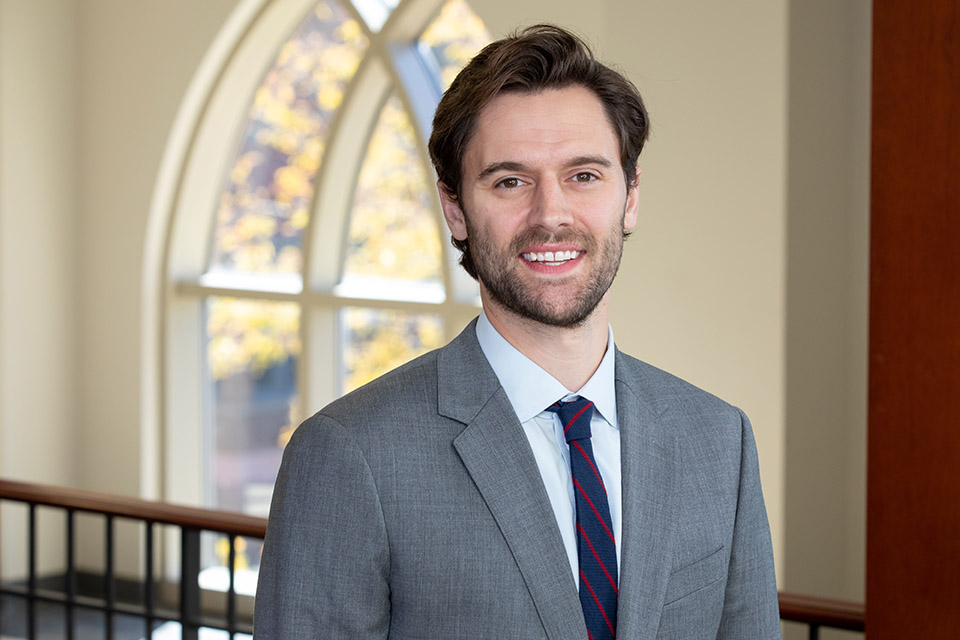Chaifetz School Professor Cited in White House Report
Research by Marcus Painter, Ph.D., assistant professor of finance at Saint Louis University's Chaifetz School of Business, into how the increased risk of climate change-related events affects the market for municipal bonds has made it into an annual presidential report.
The White House Council of Economic Advisors released the 2023 Economic Report of the President, citing Dr. Painter's work, on March 20. Chapter 9 of the report, “Opportunities for Better Managing Weather Risk in the Changing Climate,” cites a 2020 paper by Dr. Painter titled “An inconvenient cost: The effects of climate change on municipal bonds.” The report describes how climate change's effects appear in various long-term financial outlooks and instruments.
“Several researchers have found evidence that the municipal bond market is beginning to account for these risks in its pricing of loans to municipalities,” the report states. “Bonds for cities and towns in areas exposed to sea-level rise carry a premium, with significantly larger effects on longer-maturing bonds, implying that investors expect either a decline in cash flow or increasing volatility in exposed cities.”
Dr. Painter’s interest in the intersection of climate and the bond market began when he was working as a portfolio analyst for a bank in Columbia, Missouri.
“Part of my job was deciding how to invest our clients’ assets, and municipal bonds were a big part of that,” said Dr. Painter. “Around that time, Warren Buffet was in the news for addressing a proxy proposal that involved the effect of climate change on insurance premiums. Those change every year, so the effects aren’t as locked in, but I started to wonder if there was an effect on municipal bonds as a longer-term asset. It turns out there was.”
Dr. Painter’s research examined the municipal bond market as a particular test case for how such long-term investments take climate change risks into account. The paper describes how municipal bonds are not just uniquely affected because of their longer terms (usually 30 years), but also because of the permanence of municipal institutions and infrastructure.
“(M)unicipalities are unable to relocate away from climate change risk in the way a corporation could,” the paper states. “... Therefore, investors are more likely to account for climate change risk when investing in municipal bonds as opposed to corporate bonds or stocks.”
Cecilia Rouse, the chair of the Council of Economic Advisors, notified Professor Painter by email that his work had been cited in the report.
“It’s kind of surreal,” he says. “It’s always a goal for your research to have a tangible policy impact, and it’s always a great milestone in your career to have a citation like this that shows the relevance of your work.”
Dr. Painter holds a B.S.B.A. in finance and banking from the University of Missouri and a Ph.D. in finance from the University of Kentucky. In addition to municipal and climate finance, his research interests include investments, FinTech/Big Data and political economy.
[https://www.whitehouse.gov/wp-content/uploads/2023/03/ERP-2023.pdf] Read the full Economic Report of the President
Founded in 1910, the Richard A. Chaifetz School of Business at Saint Louis University has shaped the future of industry for more than a century. As one of the oldest business schools west of the Mississippi, the Chaifetz School has built a reputation as a leader in business education committed to innovation, inclusion and impact and recognized with eight undergraduate and graduate programs nationally ranked by U.S. News & World Report.
